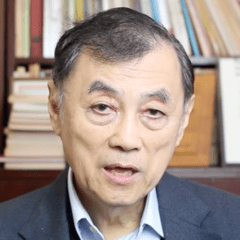You are not currently logged in. Please create an account or log in to view the full course.
From Mao to Deng
- About
- Transcript
- Cite
China – Deng Xiaoping and the Opening of China, 1979-97
In this course, Professor Frank Ching (Hong Kong University of Science and Technology) explores the development of Chinese society, politics and economics during the rule of Deng Xiaoping, sometimes referred to as the ‘Opening of China’. In the first module, we think about the state of China following Mao’s death in 1976, Deng’s attempts to consolidate power, and the some of his early economics reforms. In the second module, we think about the development of the Chinese economy under Deng Xiaoping, before turning in the third and fourth modules to track the evolution of US-China relations in between 1968-96. In the fifth module, we think about political developments in China between 1979-97, before turning in the sixth module to consider China’s position in the world at the time of Deng’s death in 1997.
From Mao to Deng
In this module, we think about the state of China following Mao’s death in 1976, Deng’s attempts to consolidate power, and the some of his early economics reforms, focusing in particular on: (i) Mao’s reluctance to name a successor in his lifetime, his purging of leading contenders such as Liu Shaoqi and Lin Biao, and his eventual choice of Hua Guofeng in the months before he died; (ii) the attempt of Mao’s wife, Jiang Qing, and other radicals in the party to seize power from Hua, and Hua’s response; (iii) Hua’s unsuitability as leader, and the return of Deng Xiaoping to the centre of Chinese politics; (iv) the differing approaches of Hua and Deng, Hua’s ‘Two Whatevers’ and Deng’s desire to promote economic development; (v) the lack of economic development under Mao, including the huge backwards steps of the Great Leap Forward and the Cultural Revolution; (vi) Deng’s consolidation of power, the importance of Zhao Ziyang and Hu Yaobang; (vii) Deng’s unwillingness to contemplate major political reforms; (viii) some of Deng’s economic policies and their impact, including de-collectivization in the Chinese countryside, the creation of Special Economic Zones (SEZs); and (ix) some of Deng’s political reforms, including the introduction of term limits and mandatory retirement ages.
Cite this Lecture
APA style
Ching, F. (2020, November 26). China – Deng Xiaoping and the Opening of China, 1979-97 - From Mao to Deng [Video]. MASSOLIT. https://massolit.io/courses/china-deng-xiaoping-and-the-opening-of-china-1979-97/political-developments-1979-97
MLA style
Ching, F. "China – Deng Xiaoping and the Opening of China, 1979-97 – From Mao to Deng." MASSOLIT, uploaded by MASSOLIT, 26 Nov 2020, https://massolit.io/courses/china-deng-xiaoping-and-the-opening-of-china-1979-97/political-developments-1979-97

